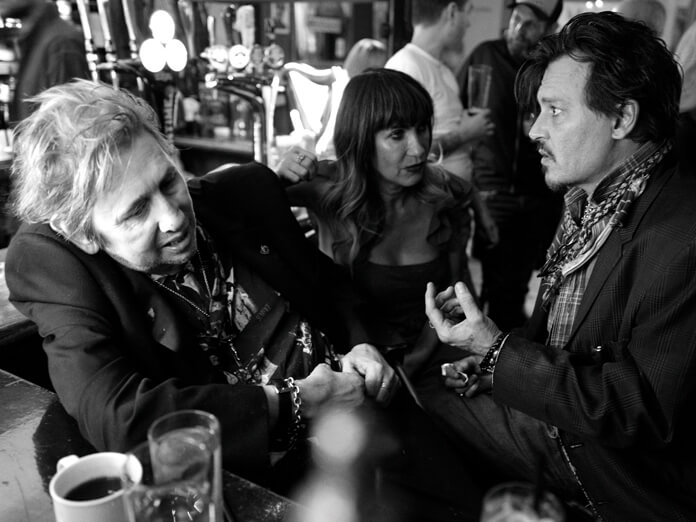The boozing depicted in Thomas Vinterberg’s Another Round looks like mere middle-class dilettantism – which, of course, it is – compared to the hard living associated with Shane MacGowan. Excess is central to the myth of the Pogues’ founding bard, but it had a catastrophic effect on MacGowan’s creative abilities and his health.
Crock Of Gold is the latest film from Julien Temple, who has been documenting the hard cases of the British music scene for decades, with MacGowan the latest subject in a series of portraits that has also featured Ray Davies, Wilko Johnson and Joe Strummer. MacGowan fans will relish the sheer exuberance of a film that barrels along with the same hectic passion as a vintage Pogues number.
Executed in a symphonic cacophony of styles, it takes in archive footage, interview material, ironically kitsch evocations of MacGowan’s childhood in an idealised golden-glowing Ireland, and animations in different styles, including a Ralph Steadman interpretation of a particularly nightmarish antipodean meltdown. Also featured are telling interviews with MacGowan’s father, while the man himself is seen in conversation with Johnny Depp (one of the producers), sardonically receiving homage from Sinn Fein politician Gerry Adams, and proving amusingly impervious to conversational prompting from Bobby Gillespie.
While the animations show MacGowan’s life as something of a picaresque romp, we also get a clear sense of the isolation and mental turmoil that underpinned his experience from early on. The damage done by the hellraising, and by the Pogues’ relentlessly punishing tours, becomes clear in the recent images of a debilitated and withdrawn MacGowan, now 62.
But Temple’s most original insight here is to focus on the seriousness with which MacGowan mined Irish myth and history, which underpin so many of his brilliantly crafted and ripely literate songs. From the breakneck to the poignantly lyrical, his repertoire comes alive again here in a torrent of inspiration and a blast of whiskey breath.


